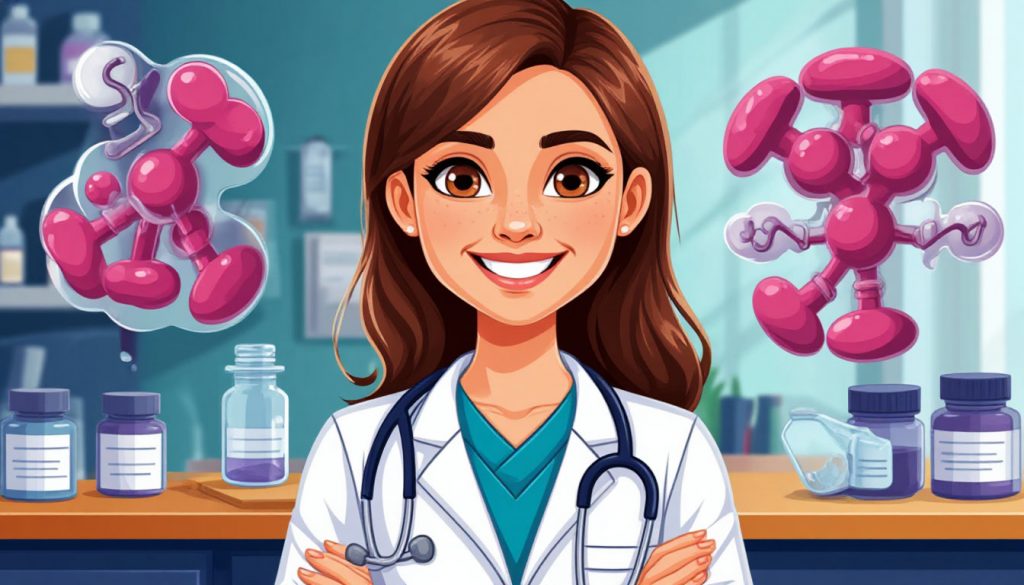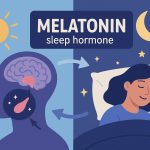Hormones are powerful chemical substances that play a vital role in maintaining balance and coordination across all body systems. Produced by various endocrine glands, hormones regulate everything from metabolism and mood to growth, reproduction, and immune function. Even a slight hormonal imbalance can lead to serious health issues. This article explores what hormones are, how they work, and why they are essential to human health.
What Are Hormones?
Hormones are chemical messengers secreted by glands into the bloodstream, where they travel to organs and tissues to regulate key biological processes. They act slowly but have long-lasting effects on target cells.
Hormones control:
- Growth and development
- Metabolism (how the body uses energy)
- Mood and emotional responses
- Sleep cycles
- Sexual function and reproduction
- Stress responses
- Body temperature and hydration
The Endocrine System: Where Hormones Are Made
The human endocrine system includes several major glands:
| Gland | Location | Main Hormones Produced |
|---|---|---|
| Hypothalamus | Brain | Regulates the pituitary gland |
| Pituitary gland | Base of the brain | Growth hormone, oxytocin, prolactin |
| Thyroid gland | Neck | Thyroxine (T4), triiodothyronine (T3) |
| Parathyroid glands | Neck (behind thyroid) | Parathyroid hormone (calcium balance) |
| Adrenal glands | Above the kidneys | Cortisol, adrenaline, aldosterone |
| Pancreas | Abdomen | Insulin, glucagon |
| Ovaries (females) | Pelvis | Estrogen, progesterone |
| Testes (males) | Scrotum | Testosterone |
| Pineal gland | Brain | Melatonin (sleep-wake regulation) |
Key Hormones and Their Functions
1. Insulin
- Produced by the pancreas
- Regulates blood sugar levels
- Essential for energy use and storage
- Imbalance linked to diabetes
2. Cortisol
- Produced by the adrenal glands
- Known as the stress hormone
- Helps the body respond to danger and regulate metabolism
- Chronic excess can lead to anxiety, fatigue, and weight gain
3. Estrogen and Progesterone
- Female sex hormones produced by the ovaries
- Regulate the menstrual cycle and reproductive health
- Also influence bone density, mood, and skin health
4. Testosterone
- Primary male sex hormone produced by the testes
- Responsible for male characteristics and muscle growth
- Plays a role in libido, energy levels, and bone strength
5. Thyroid Hormones (T3 & T4)
- Control metabolism, body temperature, and heart rate
- Imbalances cause hypothyroidism (sluggishness) or hyperthyroidism (nervousness, weight loss)
6. Growth Hormone (GH)
- Regulates physical growth, cell repair, and muscle development
- Deficiency in children can lead to stunted growth
7. Oxytocin
- Involved in bonding, childbirth, and breastfeeding
- Known as the “love hormone” — promotes social connection and trust
Hormonal Imbalance: Symptoms and Causes
Even slight changes in hormone levels can cause:
- Weight gain or loss
- Fatigue
- Anxiety or depression
- Hair loss or skin changes
- Infertility or irregular periods
- Sleep disturbances
Causes may include stress, poor diet, sleep deprivation, chronic illness, or aging.
How to Support Hormonal Health
- Sleep well – Hormones like melatonin and cortisol depend on a healthy sleep cycle
- Eat a balanced diet – Include healthy fats, protein, fiber, and micronutrients
- Manage stress – Chronic stress disrupts cortisol and insulin balance
- Exercise regularly – Boosts endorphins and helps regulate testosterone and insulin
- Limit alcohol and sugar – They can affect estrogen, insulin, and thyroid function
- Get regular checkups – Especially during puberty, pregnancy, menopause, or if symptoms occur
Conclusion
Hormones are the invisible conductors of your body’s orchestra — they coordinate essential processes that keep you alive, alert, and healthy. Understanding how hormones work and how to keep them in balance can help you improve energy, mood, and overall well-being. If you suspect a hormonal issue, consult a healthcare professional for testing and treatment options.
Glossary
- Endocrine system – the network of glands that produce and release hormones
- Insulin – a hormone that controls blood sugar
- Cortisol – the hormone that manages stress and metabolism
- Estrogen – a primary female sex hormone
- Testosterone – a primary male sex hormone
- Thyroid – a gland that regulates metabolism and energy
- Melatonin – a hormone that regulates sleep-wake cycles


